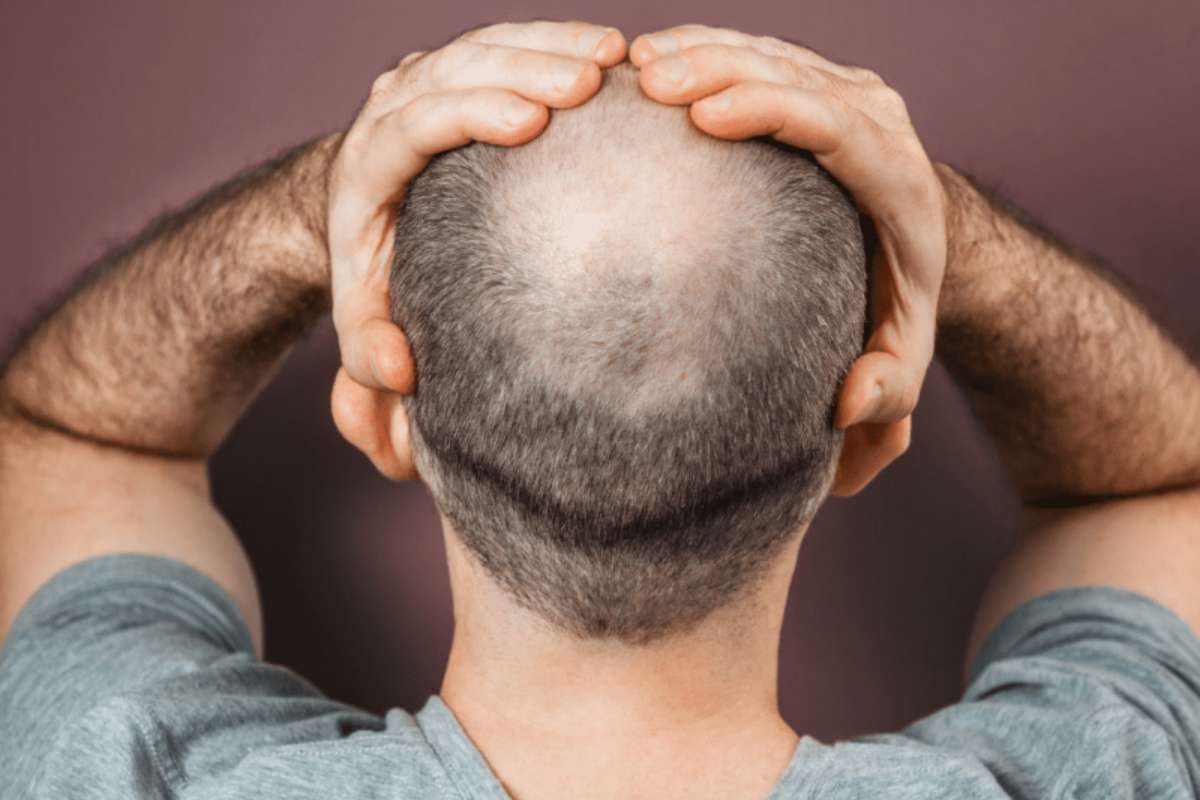Many people travel for hair transplants. Some patients travel to save money on the procedure; some do not have access to hair transplant surgeons locally; and some, such as many of our patients here at Limmer Hair Transplant Center (LHTC), travel to receive care from expert surgeons and hair transplant technicians. Comprehensive care from an experienced hair transplant specialist and clinic staff can make traveling for your surgery an appropriate and exciting option. When important elements of patient care before, during, and after hair transplantation are not prioritized, unfortunate events can occur.
Especially if you need to get on an airplane with your head bandaged.
Poor post-operative planning, being left to address complications on your own, or even choosing a clinic with lower standards are just a few of the elements that can create difficulties for patients traveling for hair transplants. Recent events have shown that improper aftercare during travel can lead to serious problems, including a man who made headlines after refusing to leave a flight due to his head bleeding – a complication from his hair transplant procedure.
Man Gets Thrown Off of Flight After Hair Transplant
One of the most dramatic examples of the risks involved in traveling for a hair transplant happened recently on a flight from Miami to Las Vegas. A man who had undergone a hair transplant in Miami just days earlier was found bleeding from his scalp while on the plane waiting to take off. When other passengers noticed his condition and asked flight attendants to talk with him and ask him to leave the plane for medical attention, he refused, causing a scene and leading to his arrest.
This incident highlights some of the pitfalls of improper planning when traveling for hair transplantation. Hair transplants, like any surgeries, can have complications. In this case, it is hard to tell where in the pre-, intra-, or post-operative period this patient’s care went wrong. Was he an appropriate hair transplant candidate? Was he assessed for bleeding risk with pre-operative labs? Was he counseled to discontinue medications, supplements, and, yes, even alcohol before the procedure to decrease bleeding risk? Was his surgery itself too aggressive? Was he given post-operative supplies and detailed instructions? Was his clinic available to assist with questions or concerns after surgery?
Decades of experience in the hair transplant world have prepared us at LHTC to help patients safely plan their travel to and from San Antonio, Texas, for care at our clinic. It is important for patients to understand the risks involved and the questions to ask your surgeon. Take the time to research your doctor; talk to other patients (especially out-of-town patients if you’re going to be traveling) and ensure that your surgeon has experience in helping people travel home after the procedure.
Why Do People Travel for Hair Transplants?
Traveling for hair transplants, and medical tourism in general, has become more popular, and there are a few main reasons why. One of the biggest reasons is the cost.
In some places, hair transplants can be much cheaper than in others, especially when comparing prices among countries. For many, the chance to save money on surgery makes the idea of traveling seem worth it.
Another reason people travel is to get access to specific specialists. Some doctors have built strong reputations for being the best in the field, so people are willing to travel to get treated by these experts. Whether it’s because of their experience, advanced techniques, or the quality of their work, some people feel it’s worth the trip.
There’s also the idea of mixing surgery with a vacation. Some people see an opportunity to get their hair transplant while also enjoying a trip abroad or to a new city. Combining recovery time with relaxing by the beach or exploring a new place can make the process seem more appealing.
Finally, for people living in areas where hair transplant services are limited, traveling might be the only option. If there aren’t any qualified specialists nearby, patients may have no choice but to find a clinic in a different region.
At surface level, all of the above are valid reasons to travel for medical care. At LHTC, we strive to provide access to reasonably priced hair transplantation procedures for appropriate surgical candidates. Importantly, our combination of clinical expertise and thoroughly trained staff are some of the key elements we have in place to ensure that our patients, be they local or traveling to see us, are safe throughout the process.
Risks of Traveling for a Hair Transplant
If proper preparations are not in place, traveling for a hair transplant can be risky. This news story in particular highlights the possibility of post-op complications.
After a hair transplant, you have wounds both in the donor area of your scalp (where we obtain the hair follicles) and in the recipient area (where your grafts are placed). It is true that your scalp needs time to heal, but Dr. Krejci’s years of experience have demonstrated that flying the day after surgery is actually safer than waiting.
One of the major elements of recovering from a hair transplant procedure is battling swelling. Flying can cause pressure changes in the body, which may make swelling or bleeding worse. So ironically, flying BEFORE the swelling has an opportunity to set in can reduce your chances for complications when traveling home from our clinic.
Another risk of traveling for medical treatments is the lack of access to follow-up care. If you’re far from your surgeon, it can be hard to get help if something goes wrong. At LHTC, we provide patients with extensive post-operative instructions as well as the necessary supplies. Our experienced technicians call all of our patients the day after surgery and throughout the first week to monitor their progress and answer any questions. The surgeons Drs. Krejci and Limmer routinely schedule video follow-ups for our out-of-town patients.
There’s also the concern about surgical quality control. Not all clinics follow the same standards and safety regulations, especially when comparing different countries. Also, some clinics perform overly aggressive surgeries that are prone to bleeding. Such considerations are particularly important when traveling internationally, where medical standards and surgical approaches vary widely.
Communication can also be an issue. In some countries, language barriers can make it hard to fully understand what’s going on with your surgery and the care you’ll need afterward. This can lead to misunderstandings about important aspects of your recovery, making it harder to ensure you’re doing the right things to heal.
One final risk of traveling for surgery would be incomplete or insufficient pre-operative work-up. As Benjamin Franklin said, “By failing to prepare, you are preparing to fail.” We are proud to offer comprehensive pre-operative assessments by our trained dermatologic surgeons, including labs and detailed pre-op instructions. Planning for a hair transplant procedure should be as close to an identical experience as possible whether you are traveling for your surgery or live down the street from the clinic.
Precautions to Take If You’re Traveling for a Hair Transplant
If you decide to travel for a hair transplant, whether domestically or internationally, there are several important precautions you should take to ensure your safety and the success of the procedure.
First, always have a detailed consultation with your surgeon before making travel plans. Make sure to discuss travel plans after surgery and any special considerations based on your individual health or the type of transplant you’re having. A good surgeon will explain how to minimize risks while traveling.
Second, have a follow-up care plan in place. If you’re traveling far from your clinic, ask your surgeon what to do if complications arise once you’re back home. It’s a good idea to arrange follow-up appointments or have a local doctor you can visit if needed.
Lastly, be aware of laws and regulations if you’re traveling abroad. Make sure the country you’re visiting has strong healthcare standards and verify the surgeon’s credentials. Look for reviews and testimonials to ensure the clinic follows proper practices and safety measures.
By taking these steps, you can reduce the risks associated with traveling for a hair transplant and help ensure your surgery and recovery go smoothly.
Use Caution When Traveling for a Hair Transplant
Patients visit us at Limmer Hair Transplant Center from all over the globe. We know that traveling for a hair transplant procedure can be done in a safe way, and we have procedures in place to ensure all patients have optimal outcomes, from pre-operative risk assessment to post-operative follow-up. We are accessible to our patients all through the hair transplant process such that no question or concern should go unanswered.
Not at clinics are created equally, though, and inadequate or improper planning can make traveling for surgery dangerous. The risks are even higher when heading abroad, where healthcare standards and legal protections might not be as robust as at home.
Ultimately, when considering a hair transplant, it’s important to carefully weigh the pros and cons of traveling for the procedure. Selecting a clinic that prioritizes safety and has experience with patients traveling post-operatively can ensure the best outcome, allowing you to focus on healing and achieve the results you want.







